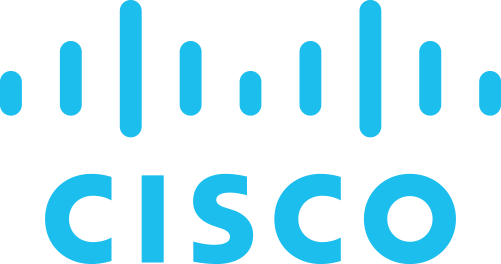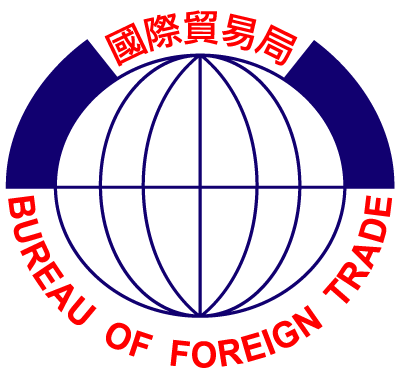Workshop Charis
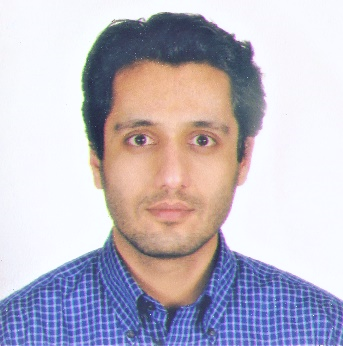 |
Saeed R. Khosravirad, Nokia Bell Labs, USA Saeed R. Khosravirad is a Member of Technical Staff at Nokia Bell Labs. He received his Ph.D. degree in telecommunications in 2015 from McGill University, Canada. During 2018-2019, he was with the Electrical & Computer Engineering department of University of Toronto, Canada as a Visiting Scholar. His research fields of interest include ultra-reliable wireless communication for industrial automation and radio resource management for 5G technology.
|
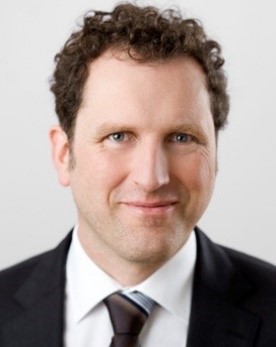 |
Wilhelm Keusgen, Fraunhofer Heinrich Hertz Institute, Germany Wilhelm Keusgen received the Dipl.-Ing. (M.S.E.E.) and Dr.-Ing. (Ph.D.E.E.) degrees from the RWTH Aachen University, Aachen, Germany, in 1999 and 2005, respectively. From 1999 to 2004, he was with the Institute of High Frequency Technology, RWTH Aachen University, where he worked on microwave frontend technologies, millimeter wave antennas and the reciprocity of multiple antenna systems. Since 2004 he is heading a research group for millimeter-waves and advanced transceiver technologies at the Fraunhofer Institute for Telecommunications, Heinrich Hertz Institute, located in Berlin, Germany. His main research areas are millimeter wave and THz communications for 5G and beyond, measurement and modeling of wireless propagation channels, multiple antenna systems, full duplex communication and compensation of transceiver impairments. Wilhelm Keusgen is author or co-author of more than 130 scientific papers. From 2007 to 2017 he had a lectureship at the Technical University Berlin.
|
 |
Holger Claussen, Nokia Bell Labs, Ireland Dr. Holger Claussen is leader of the Wireless Communications Department of Nokia Bell Labs located in Ireland and the US. In this role, he and his team are innovating in all areas related to future evolution, deployment, and operation of wireless networks to enable exponential growth in mobile data traffic and reliable low latency communications. His research in this domain has been commercialized in Nokia's (formerly Alcatel-Lucent's) Small Cell product portfolio and continues to have significant impact. He received the 2014 World Technology Award in the individual category Communications Technologies for innovative work of “the greatest likely long-term significance”. Prior to this, Holger directed research in the areas of self-managing networks to enable the first large scale femtocell deployments from 2009 onward. Holger joined Bell Labs in 2004, where he began his research in the areas of network optimization, cellular architectures, and improving energy efficiency of networks. Holger received his Ph.D. degree in signal processing for digital communications from the University of Edinburgh, United Kingdom in 2004. He is author of 1 book, more than 125 publications and 120 filed patent families. He is Fellow of the World Technology Network, senior member of the IEEE, and member of the IET.
|
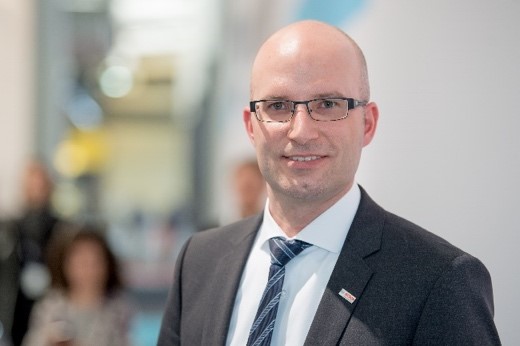 |
Andreas Mueller, Robert Bosch GmbH, Germany Andreas Mueller is the Head of Communication and Network Technology within Bosch Corporate Research in Renningen, Germany. In addition to that, he is coordinating the 5G activities related to Industry 4.0 across the Bosch Group, and he is Chairman of the Board of the ‘5G Alliance for Connected Industries and Automation’ (5G-ACIA), which has been established in order to make sure that 5G for the industrial becomes a success. Andreas holds a German Diploma degree as well as a Ph.D. degree in Electrical Engineering (with distinction) and a M.Sc. degree in Information Technology.
|
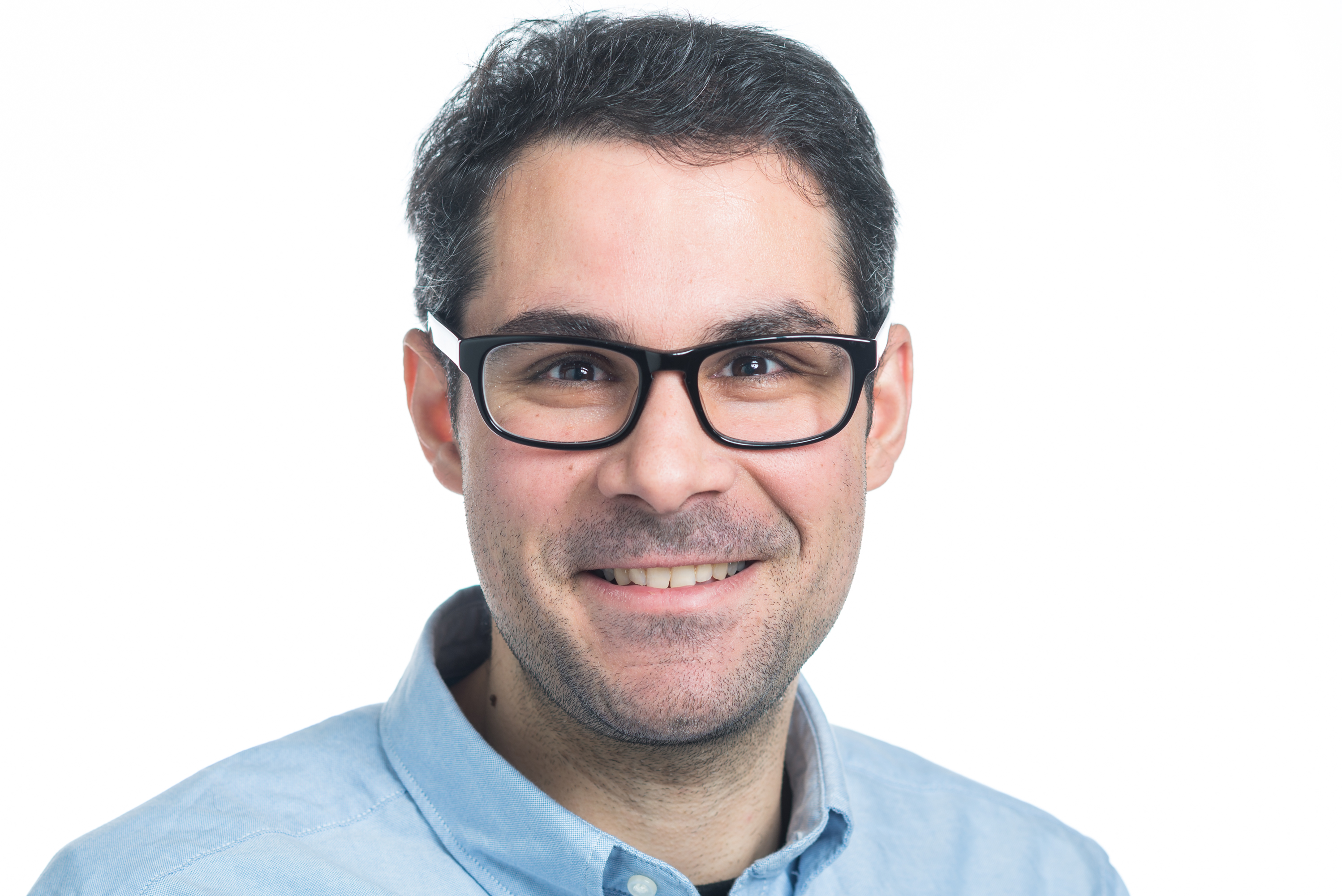 |
Nikolaos Pappas, Associate Professor, Linköping University, Sweden Nikolaos Pappas received the B.Sc. degree in computer science, the B.Sc. degree in mathematics, the M.Sc. degree in computer science, and the Ph.D. degree in computer science from the University of Crete, Greece, in 2005, 2012, 2007, and 2012, respectively. From 2005 to 2012, he was a Graduate Research Assistant with the Telecommunications and Networks Laboratory, Institute of Computer Science, Foundation for Research and Technology-Hellas, and a Visiting Scholar with the Institute of Systems Research, the University of Maryland at College Park, College Park, MD, USA. From 2012 to 2014, he was a Post-Doctoral Researcher with the Department of Telecommunications, Supélec, France. Since 2014, he has been with Linköping University, Norrköping, Sweden, as a Marie Curie Fellow (IAPP). He is currently an Associate Professor in mobile telecommunications with the Department of Science and Technology, Linköping University. His main research interests include the field of wireless communication networks with emphasis on stability analysis, energy harvesting networks, network-level cooperation, age of information, network coding, and stochastic geometry. From 2013 to 2018, he was an Editor of the IEEE COMMUNICATIONS LETTERS. He is currently an Editor of the IEEE TRANSACTIONS ON COMMUNICATIONS, the IEEE/KICS JOURNAL OF COMMUNICATIONS AND NETWORKS, and the IEEE OPEN JOURNAL OF COMMUNICATIONS SOCIETY. He is also a Guest Editor of the IEEE Internet of Things Journal for the Special Issue “Age of Information and Data Semantics for Sensing, Communication and Control Co-Design in IoT”. |
Technical Program Committee
Dr. Emilio Calvanese-Strinati, CEA-Leti, France
Dr. Emilio Calvanese Strinati obtained his Engineering master’s degree in 2001 from the University of Rome ‘La Sapienza’ and his Ph.D. in Engineering Science in 2005. He then started working at Motorola Labs in Paris in 2002. Then in 2006 he joint CEA/LETI as a research engineer. From 2007, he becomes a PhD supervisor. From 2010 to 2012, Dr. Calvanese Strinati has been the co-chair of the wireless working group in GreenTouch Initiative which deals with design of future energy efficient communication networks. From 2011 to 2016 he was the Smart Devices & Telecommunications European collaborative strategic programs Director. Between December 2016 he and January 2020 is was the Smart Devices & Telecommunications Scientific and Innovation Director. Since February 2020 he is the Nanotechnologies and Wireless for 6G (New-6G) Program Director focusing on future 6G technologies. In December 2013 he has been elected as one of the five representative of academia and research center in the Net!Works 5G PPP ETP. From 2017 to 2018 he was one of the three moderators of the 5G future network expert group. Between 2016 and 2018 he was the coordinator of the H2020 joint Europe and South Korea 5GCHAMPION project. Since July 2018 he is the coordinator of the H2020 joint Europe and South Korea 5G-AllStar project. Since 2018 he holds the French Research Director Habilitation (HDR).
Prof. Sergio Barbarossa, Sapienza – University of Rome, Italy
Sergio Barbarossa (Fellow, IEEE) received the M.S. and Ph.D. degrees in electrical engineering from the University of Rome La Sapienza, Rome, Italy, where he is currently a Full Professor and a Senior Research Fellow of Sapienza School for Advanced Studies. He has held visiting positions with the Environmental Research Institute of Michigan (1988), University of Virginia (1995– 1997), and University of Minnesota (1999). His research interests include 5G networks, mobile edge computing, machine learning and topo- logical signal processing. He is a fellow of European Association for Signal Processing (EURASIP). He served as an IEEE Distin- guished Lecturer and received the IEEE best paper awards from the IEEE Signal Processing Society for the years 2000 and 2014. He received the 2010 Technical Achievements Award from the EURASIP society for his contributions on radar, communication and networks. He has been the scientific coordinator of several EU projects on wireless sensor networks, small cell networks, distributed mobile cloud computing and 5G networks. He is currently involved in the EU/Taiwan H2020 project 5G CONNI aimed at enabling Industry 4.0 using private 5G networks.
Sven Wittig, Fraunhofer Heinrich Hertz Institute, Germany
Sven Wittig received his B.Sc. and M.Sc. degrees in electrical engineering from RWTH Aachen University, Germany, in 2014 and 2016, respectively. Since 2017, he has been with the millimeter wave group at the Fraunhofer Heinrich Hertz Institute, Berlin, Germany. His current research interests include millimeter-wave communications and measurement techniques with application to network testing and localization. Currently, he is involved in the EU-Taiwan IIoT research project 5G CONNI which is coordinated by Fraunhofer HHI. He is working towards his Ph.D. degree in the areas of channel measurement and OTA techniques.
Dr. Mahsa Derakhshani, Loughborough University, UK
Mahsa Derakhshani is a Lecturer (Assistant Professor) in Digital Communications with the Wolfson School of Mechanical, Electrical and Manufacturing Engineering, Loughborough University, UK. She was an Honorary NSERC Postdoctoral Fellow with Department of Electrical and Electronic Engineering, Imperial College London (2015 to 2016), a Postdoctoral Research Fellow with the Department of Electrical and Computer Engineering, University of Toronto, Toronto, Canada (2013 to 2015). She received her Ph.D. in electrical engineering degree from McGill University, Montreal, Canada, in 2013. Her research interests include radio resource management for wireless networks, software-defined wireless networking, applications of machine learning and optimization for communication systems.
Dr. Gilberto Berardinelli, Aalborg University, Denmark
Gilberto Berardinelli received the first and second level degrees (cum laude) in telecommunication engineering from the University of L’Aquila, Italy, in 2003 and 2005, respectively, and the Ph.D. degree from Aalborg University, Denmark, in 2010. He is currently an Associate Professor with the Wireless Communication Networks (WCN) Section, Aalborg University, and also working in tight cooperation with Nokia Bell Labs. His research interests include mostly focused on physical layer, medium access control, and radio resource management design for 5G systems and beyond. He is the author or coauthor of more than 100 international publications, including conference proceedings, journal contributions, and book chapters.
Dr. Liang Liu, EIE Department, The Hong Kong Polytechnic University, Hong Kong
Liang Liu is currently an Assistant Professor in the Department of Electronic and Information Engineering at the Hong Kong Polytechnic University. He received the B.Eng. degree from the Tianjin University, China, in 2010, and the Ph.D. degree from the National University of Singapore in 2014. His research interests include the next generation cellular technologies and machine-type communications for Internet of Things. He was the recipient of the IEEE Signal Processing Society Young Author Best Paper Award, 2017, and a Best Paper Award from IEEE WCSP in 2011. He is recognized by Clarivate Analytics as a Highly Cited Researcher, 2018.
Dr. Paolo Baracca, Nokia Bell Labs, Germany
Paolo Baracca is a Research Engineer at Nokia Bell Labs in Stuttgart, Germany, since 2013. He received the B.Sc. and the M.Sc. degree in Telecommunications Engineering in 2007 and 2009, respectively, and the Ph.D. degree in Information Engineering in 2013, all from the University of Padova, Italy. His research interests include signal processing, multi-antenna techniques and scheduling for wireless communications. He has co-authored more than 30 research papers and holds more than 20 issued or pending patents.
Dr. Frank Schaich, Nokia Bell Labs, Germany
Frank Schaich received his Dipl.-Ing. and Dr.-Ing. degree in electrical engineering from the University of Stuttgart. 2007 he joined Alcatel-Lucent’s wireless access physical layer group. Dr. Schaich served as work package leader for various European Union’s FP7 projects (PHYDYAS, ACCORDANCE). He has been active on developing solutions for the next generation of wireless cellular communication systems in the framework of 5GNOW and METIS. Dr. Schaich has coordinated FANTASTIC-5G and ONE5G in the EU framework of horizon 2020 targeting the definition of the air interface for 5G. Currently, he is leading the department Hardware Platforms and Research Testbeds in Stuttgart being a part of the Access & Devices Lab within Nokia Bell Labs.
Dr. Giovanni Geraci, Universitat Pompeu Fabra, Spain
Giovanni Geraci is an Assistant Professor at UPF Barcelona. He was a Research Scientist with Nokia Bell Labs and earned a Ph.D. from UNSW Sydney. He is an Editor for the IEEE Trans. on Wireless Commun. and IEEE Commun. Letters, and has been a workshop organizer, panelist, workshop keynote, industrial seminar, or tutorial speaker at IEEE ICC, IEEE Globecom, IEEE WCNC, IEEE PIMRC, and IEEE VTC. He has co-authored 50+ IEEE publications with 1500+ citations, and is co-inventor of a dozen filed patent families. He was the recipient of the Best Paper Award at IEEE PIMRC'19 and of the 2018 IEEE ComSoc Outstanding Young Researcher Award for Europe, Middle-East & Africa.
Dr. Mahyar Shirvanimoghaddam, The University of Sydney, Australia
Mahyar Shirvanimoghaddam (SM'12–M'15-S'19) received the B.Sc. degree (Hons.) from the University of Tehran, Iran, in 2008, the M.Sc. degree (Hons.) from Sharif University of Technology, Iran, in 2010, and the Ph.D. degree from The University of Sydney, Australia, in 2015, all in electrical engineering. Since 2016, he has been with the School of Electrical and Information Engineering, The University of Sydney, as an Academic Fellow in telecommunications. His general research interests include channel coding techniques, massive multiple access, non-orthogonal multiple access, and machine learning for wireless communications. He was selected as one of the top 50 Young Scientists under the age of 40 by the World Economic Forum in 2018. He is a Senior Member of IEEE and Fellow of the Higher Education Academy. He was selected as the Exemplary Reviewer of the IEEE Communications Letters (2016) and the IEEE Transactions on Communications (2016 & 2019).
Dr. Kai Ying, Sharp Laboratories, USA
Kai Ying received the B.S. degree and the M.E. degree from the Department of Electronic Engineering, Shanghai Jiao Tong University, Shanghai, China, in 2010 and 2013, respectively, and the M.S. degree and the Ph.D. degree from the School of Electrical and Computer Engineering, Georgia Institute of Technology, Atlanta, GA, in 2013 and 2016, respectively. Currently, he is a senior researcher at Sharp Laboratories of America, Vancouver, WA. His research interests include nonlinear signal processing and ultra reliable low latency communications.
Dr. Mojtaba Vaezi, Villanova University, USA
Mojtaba Vaezi received his Ph.D. in EE from McGill University, Montreal, Canada, in 2014. From 2014 to 2015 he was a researcher at Ericsson Research, Canada, and from 2015 to 2018 he was with Princeton University, in different research positions. He is currently an Assistant Professor at Villanova University. His research interests lie at the intersection of signal processing, communications, and information theory. Among his publications in these areas is the recent book Multiple Access Techniques for 5G Wireless Networks and Beyond, (Springer, 2019). Dr. Vaezi is a recipient of a number of research, academic and leadership awards, including IEEE Communications Letters’ exemplary editor award in 2018, Korea’s best ICT paper award in 2017, NSERC Postdoctoral Fellowship in 2014, and IEEE Larry K. Wilson Regional Student Activities Award in 2013. He is/was an Editor of IEEE Transactions on Communications, IEEE Communications Letters and IEEE Communications Magazine, and an organizer of the 1st to 6th NOMA workshops at VTC’17, GC’17, ICC’18, GC’18, ICC’19, and ICC’20.
Dr. Kaiming Shen, Chinese University of Hong Kong, Hong Kong
Kaiming Shen received the B.Eng. degree in information security and the B.S. degree in mathematics from Shanghai Jiao Tong University, Shanghai, China in 2011, then the M.A.Sc. and Ph.D. degrees in electrical and computer engineering from the University of Toronto, Ontario, Canada in 2013 and 2020, respectively. He joined the School of Science and Engineering at the Chinese University of Hong Kong (Shenzhen) as a tenure-track Assistant Professor in 2020. His research interests include optimization, information theory, and wireless communications.
Dr. Ming Ding, Data61, CSIRO, Australia
Ming Ding (M’12-SM’17) is a Senior Research Scientist at Data61, CSIRO, Australia. He has authored over 100 papers in IEEE journals and conferences, all in recognized venues, and around 20 3GPP standardization contributions, as well as a Springer book “Multi-point Cooperative Communication Systems: Theory and Applications”. Currently he holds 21 US patents and co-invented another 100+ patents on 4G/5G technologies in CN, JP, KR, EU, etc. His research interests include information technology, data privacy and security, machine Learning and AI, etc. Currently, he is an editor of IEEE Transactions on Wireless Communications and IEEE Wireless Communications Letters.









